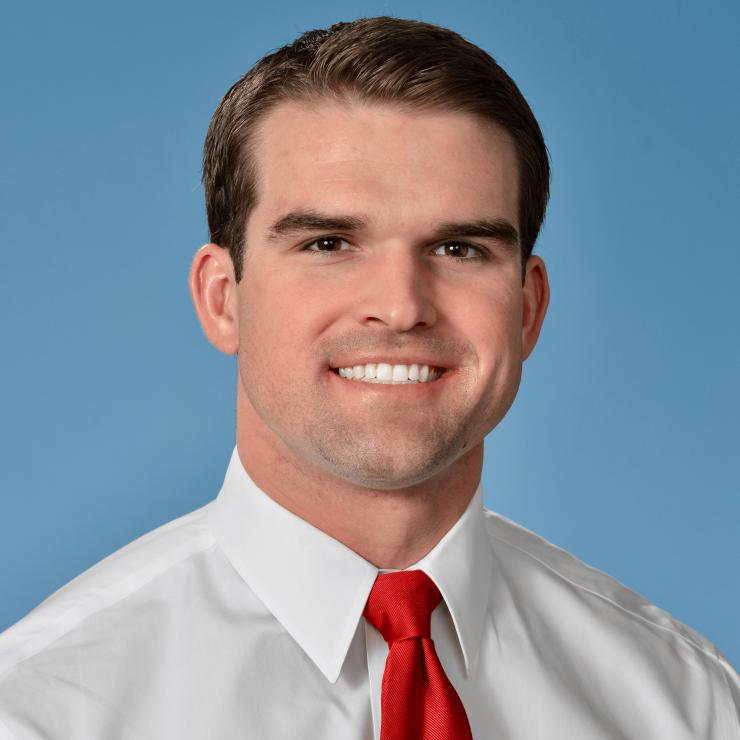
Mentor: Christopher Amos, Ph.D., M.D. Undergraduate major: Bachelor of Science in Biophysics Undergraduate school: Duke University
Graduate School: Baylor College of Medicine- M.D./Ph.D. Program
Research Interests: translational research that could inform our understanding of disease mechanisms, risk, or management.
What Advice Do You Have for Prospective Students?
Baylor College of Medicine's Quantitative and Computational Biosciences Ph.D. program is comprehensive. You will receive training in various aspects of computational science, including computational biology, statistics, and machine learning. Embrace this! It is gratifying to be able to evaluate multidisciplinary problems and contribute meaningfully in these avenues.
Why Did You Select the QCB program at BCM?
I came to Baylor as a medical student with a strong interest in research. During my first years here I recognized I wanted a formal education in computational biosciences and ultimately a career centered on scientific investigations. For this reason, I became interested in Baylor’s Ph.D. program. Past the convenience (I was already a BCM student), it was readily apparent that pursuing a Ph.D. at Baylor would be an exceptional training opportunity. Baylor College of Medicine is unique as it is a field leader in multiple scientific disciplines. Baylor has contributed substantially in the field of genetics, has a preeminent medical school, and has excellent basic science laboratories. As a result, BCM generates a lot of transdisciplinary data. Clinical records, MRI to cryo-electron microscopy images, and all the multi-omics levels of biological data can be obtained conveniently at BCM, making translational investigations readily conductible. As someone interested in diverse applications of quantitative science, these opportunities make Baylor College of Medicine an information wellspring.
What is Your Research Interest?
I am particularly interested in translational research that could inform our understanding of disease mechanisms, risk, or management. These interests have led to projects that quantify genetic and environmental contributors influencing disease development. I am working with Dr. Amos, and our investigations are in the fields of population genetics and genetic epidemiology. Most recently we have utilized a genome-wide association study (GWAS) meta-analysis to investigate polygenic contributions to lung cancer in multi-ethnic populations. I also have a growing research interest in machine learning methods and their applications to medical problems.
Why Did You Select Your Mentor?
During my first grad school year I rotated with several great mentors at Baylor College of Medicine. These researchers had access to intriguing data and projects, were highly collegial, and were genuinely interested in my career progression. I chose Dr. Amos as my principal research advisor for several reasons. I'm very interested in computational techniques and translational research. Dr. Amos is the founding director for Baylor's Institute for Clinical and Translational Research (ICTR), and his research investigations are exemplary combinations of my interests. In the ICTR multi-omics level data (genomic, transcriptomic, etc.) are combined and analyzed to progress our understanding of medically relevant diseases. Dr. Amos has led major cross-institutional and international research teams which culminated in significant advances in understanding polygenic contributions to lung cancer development. The scale of data with which Dr. Amos works and the pronounced impacts he has had led me to sign up for a rotation in his lab. I had no prior training in population genetics yet was able to complete the lab rotation. This success was primarily thanks to the highly skilled and helpful co-investigators that work in the ICTR, who also took an interest in my scientific training. I quickly felt very comfortable working with Dr. Amos's team and was excited about the possibility of learning further from the ICTR team's diverse training backgrounds and skillsets. Additionally, Dr. Amos communicates very well, and we have a good interpersonal interaction. I felt comfortable pursuing my Ph.D. in his lab, knowing I would have clear expectations and excellent mentoring.
What Aspects of Training Has Been Most Influential in Preparing For Your Intended Career?
I aim to be an academic clinician, which comes with the responsibilities of communicating scientific findings and obtaining funding for research. I want to enhance my ability to present complex ideas plainly and clearly. As part of elective curricula at Baylor, I've had the opportunity to take several writing courses that have focused on scientific writing, grant writing, as well teaching the art of informal scientific presentations such as 'off the cuff' presentations or 'chalk talks.' While I am still working on mastering these, I have found that the curriculum and experiences shared by these courses' professors have strengthened my abilities notably. This instruction has been very influential in preparing me for my intended career.
Did Baylor's Location in the Texas Medical Center Enhance Your Experience?
Absolutely! The Texas Medical Center (TMC) is the largest in the world. Baylor has excellent working relationships with neighbor TMC institutions. As a Ph.D. student at Baylor, data collection, consultation, and collaborations are easily facilitated either within Baylor campus or right down the street at other world-renowned institutions such as MD Anderson Cancer Center, Rice University, or UTHealth. I have taken specialized courses at the UTHealth school of biomedical informatics, and I look forward to taking additional lectures at Rice this spring. This coursework is supplementary to the first-rate curricula here at Baylor, which provided wide-ranging teaching to support my interests in machine learning, statistics, population genetics, and computational biology.
What Are Your Career Plans?
I intend to become a physician-scientist. I would like to have the opportunity to work at an academic institution and establish a lab presence there. I don't know exactly how much time I’ll spend in clinical work versus biomedical research, but I believe working as a scientist will take precedence. In addition, I would love to collaborate heavily with colleagues at my home or neighboring institutions - utilizing my growing skills in population genetics and machine learning to aid in transdisciplinary initiatives.








